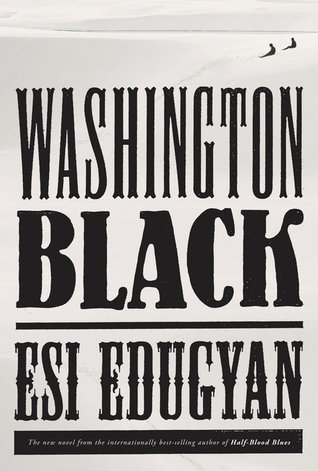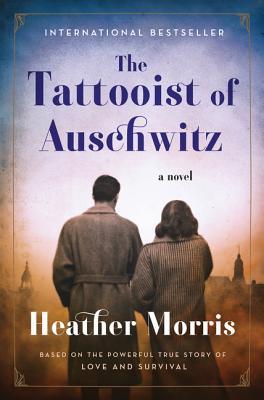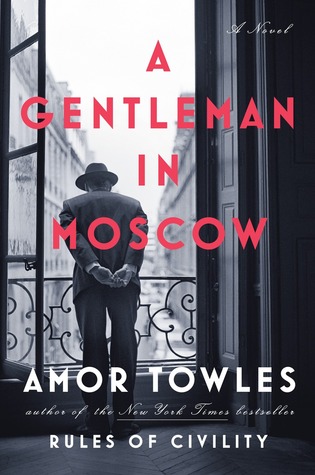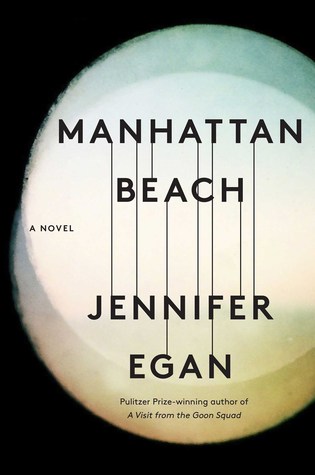Washington Black is a book of many things, except for the expected. Its outward appearance is that of a great adventure and a few quests, following the footsteps of a tenderly young escaped slave. But Esi Edugyan weaves a tale that goes much deeper to depict the basic underlying egotism and human desires that drive many, no matter where we come from. She accomplishes this by showing the similarities of two men – one a slave and our protagonist, one a man of privilege. Underneath all of our identifiers, we are driven by the same sense of self and the desire to be loved. Knopf Publishing Group | September, 2018 | Hardcover | 339 pp
Washington “Wash” Black is an eleven-year-old slave on a sugar plantation in Barbados. The plantation master of Faith is cruel and heartless and his punishments range from amputations to burning slaves alive or nailing them through the throat to a tree. When Wash and Big Kit, his maternal caregiver, are called up to the manor to wait on the master, he’s terrified. Why on earth would he, a field worker, be called to the dining hall unless he has done something terribly wrong?
That’s when Wash meets Titch, the eccentric, scientifically-inclined brother (and secret abolitionist) of the Master. Titch requests use of the young boy as he is in need of an assistant for his experiments. Wash has no choice but to leave Big Kit and go to live with Titch in his little cabin. At first, he’s petrified – wondering what this man could want from him. Titch doesn’t seem to recognize his fear and goes about his business. And he demands that Wash call him Titch, never sir or master. Wash is given new clothes, a real bed, and a place at the dinner table. Titch speaks to Wash like a real person and not an animal, although Wash really doesn’t know what to make of it and struggles with trust. But over time, this changes. Titch teaches him how to read and write and a fair amount of science. In turn, Wash shows him his affinity and natural talent for sketching. Wash begins to craft sketches for Titch to be used in a journal for publication.
What Titch is really interested in is the Wind-cutter. A hot-air balloon he has been working on and plans to launch at the top of a nearby mountain. After a gruesome night and a terrible suicide that will undoubtedly be blamed on Wash, the two make for a hasty departure on the Wind-cutter during a nighttime storm.
Wash’s new adventure and life begins with a crash landing and moves on to life on the high seas, and then travels through America, the Arctic Circle, Canada, England, Amsterdam, and Morocco. For a long while he’s hunted as an escaped slave and murderer with a bounty on his head. Living as a free man in Canada and after the collapse of slavery in the West Indies, he experiences life as a lowly black man surviving on a day-to-day basis. His talent for natural sketches brings him back into the sciences through a lucky connection and his journey begins anew.
After I read Washington Black, I thought simply that it was a fun and very unexpected adventure. It wasn’t until I dwelt on Wash and Titch later on when I made the connection, when I saw the similarities. Both characters are searching for someone, seeking acknowledgement and love. Both are dismayed at what they find, one walking out into a snowstorm – the other into a sandstorm. Both have periods of wandering listlessness, and both are pulled by science toward the ends of these periods. Both have a strong sense of familial grief and regret.
Titch and Wash are driven by the same needs and desires, the same egotism that leads them to their final disappointment and a bit of irony. It is here where Esi Edugyan reveals the nature of man, naked and disrobed from societal markings. These are two completely different men with a similar journey in life and when it comes down to it, the same emotional needs drive them. An absolutely brilliant feat of literary architecture.
Titch isn’t a character built around a “white savior” complex although it seemed that way for a bit. Even Wash had his own accusations.
“You took me on because I was helpful in your political cause. Because I could aid in your experiments. Beyond that I was of no use to you, and so you abandoned me.” I struggled to get my breath. “I was nothing to you. You never saw me as equal. You were more concerned that slavery should be a moral stain upon white men than by the actual damage it wreaks on black men.”
But this wasn’t the case, in my opinion. At the end, I didn’t see Titch in the way Washington felt in the above sentiment – I saw Titch as a human who was driven by ego, the desire to be loved by his father, and grief over his cousin, just as Washington was driven by his ego, the desire to be cared about by Titch, and grief over Big Kit.
The prose are simply gorgeous and often poetic. And the writing style is comfortable, enticing. And, of course, you have an adventure beginning with a great escape by hot air balloon. What’s not to like?
Washington Black
by Esi Edugyan




